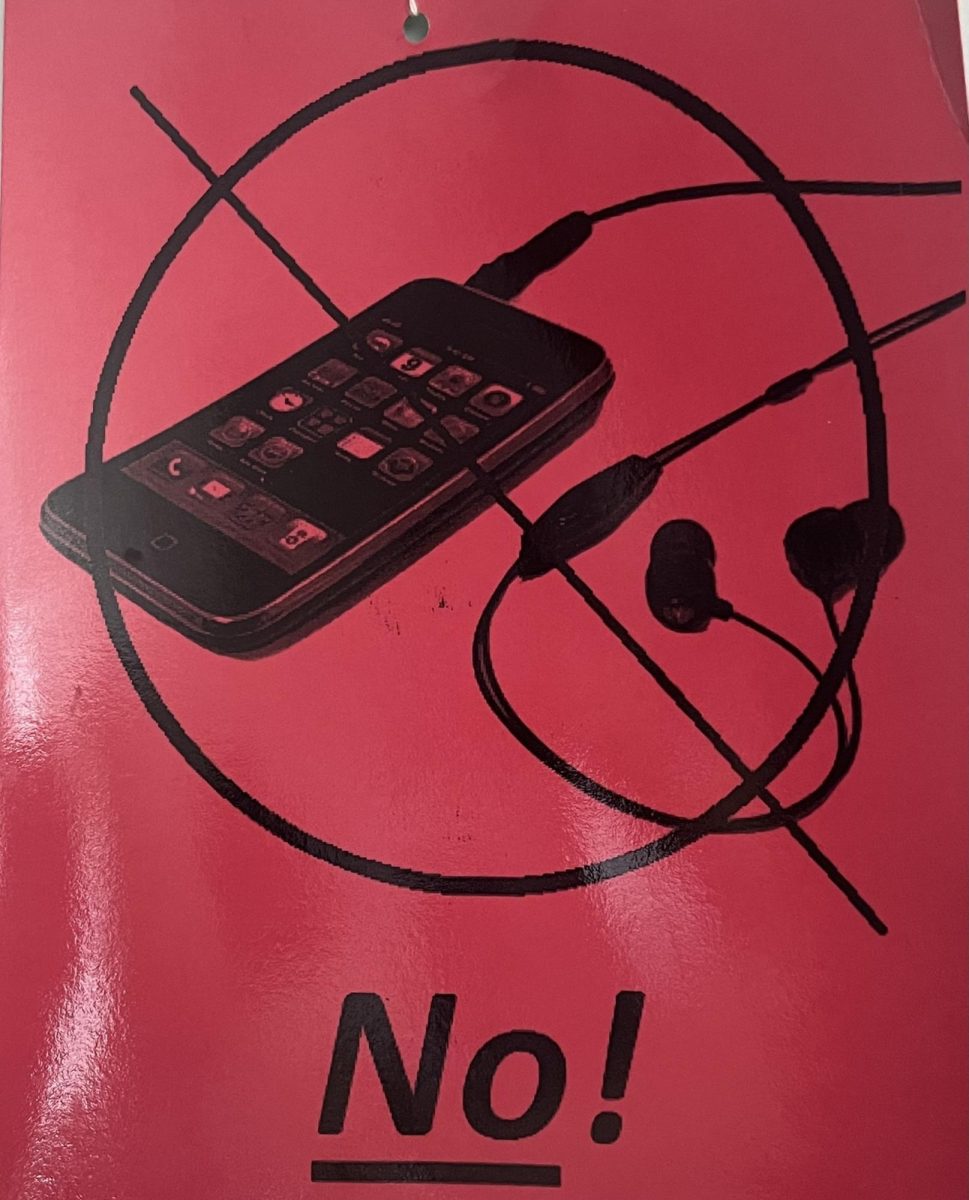Imagine walking into a classroom with kids on their phone, compared to now, where no one is on their phone, which class do you think gets more work done?
Previously the cell phone policy had been pretty lax, recently over the summer it has been totally revamped. Schools now have the ability to confiscate students’ phones, and students are divided in how they feel about this new policy.
Many wonder if this new phone policy will cause dissent within the classrooms. Is this new policy more effective or will the result stay the same? Freshmen are freshly introduced to this policy while many of the seniors have been here since the old policy and may find it a harder adjustment.
The phone policy last year teachers were not allowed to take phones and at most could only send an email home. Without parental consequences many students didn’t bother and would stay on their phones during instructional time. Phones are now allowed to be taken by administrators and kept until the end of the school day.
A teacher that has seen the positive benefits of the new policy is Mr. Gauthier, a KHS algebra teacher. He thinks the new policy, “is a good one because students need to focus on the instruction that is taking place in class and not on watching videos or playing games on their phones”. He hasn’t had to take a student’s phone, but he does know that in other classes some students have had their phones taken.
He has observed a positive results in response to the new policy. “A change I’ve noticed are students are performing better on their assignments.” An increase in performance on assignments might indicate a correlation between phone usage and grades.
Students feel divided on the strictness of the new policy but both freshmen and seniors can agree that the new policy is “annoying”. A’Nya DeBose states “I think the new policy is reasonable, but also annoying.” Many students are divided. A freshmen says compared to their old school, “The policy this year is much stricter. We could use our phone during brain breaks sometimes last year in middle school.” This new policy might be harder for some to assimilate to than others, depending on how addicted one is to being constantly on their phone.
Both students questioned have not had their phones taken and both also acknowledged that students should not be on their phones while working. Both freshmen and seniors come to a common ground when asked what their own phone policy should look like with both saying phones should not be out during class instruction or work time but when all their work is finished and “our grade is a C or higher we should be allowed to be on our phones,” A’Nya adds. The senior suggested that maybe phone access could be an incentive to encourage students to work harder.
We all can come to a mutual understanding between teachers and students that phones are not needed during instructional time and work time.
BCPS is behind the new cell phone policy as it was a county wide initiative to cut student use of phones in class. Research shows that trying to multitask when doing school work and being on your phone, you miss things and anxiety increases. “Your brain is not built to try and be at two places at once when trying to listen to a teacher and text. You miss things and this creates anxiety and stress,” shares Principal Smith.
An improvement in grades are a big hope with the implementation of the new policy. Students can access phones during lunch and passing time.
“I love going into classrooms and seeing no cell phones,” shares Principal Smith. With the new policy in place, “there is also less conflict between students when they can’t constantly text back and forth,” adds Smith.
Though students would like to see some revisions to the policy that offered more leniency, the school is seeing positive results and don’t think that will be happening. The new cell phone policy at Kenwood is here to stay.
The new cell phone policy at Kenwood High School was put in place with student’s best interest in mind, with the hope that students will excel academically and improve the school overall.
“I think it’s finally time for something to be put into place because cell phones have always been a barrier in the classroom. I’m really on board and excited to see where this will go, and hopefully as the years continue it will only get stronger,” adds ELA teacher Ms. Taylor.
How do you feel about the new cell phone policy? What positive results have you noticed?






